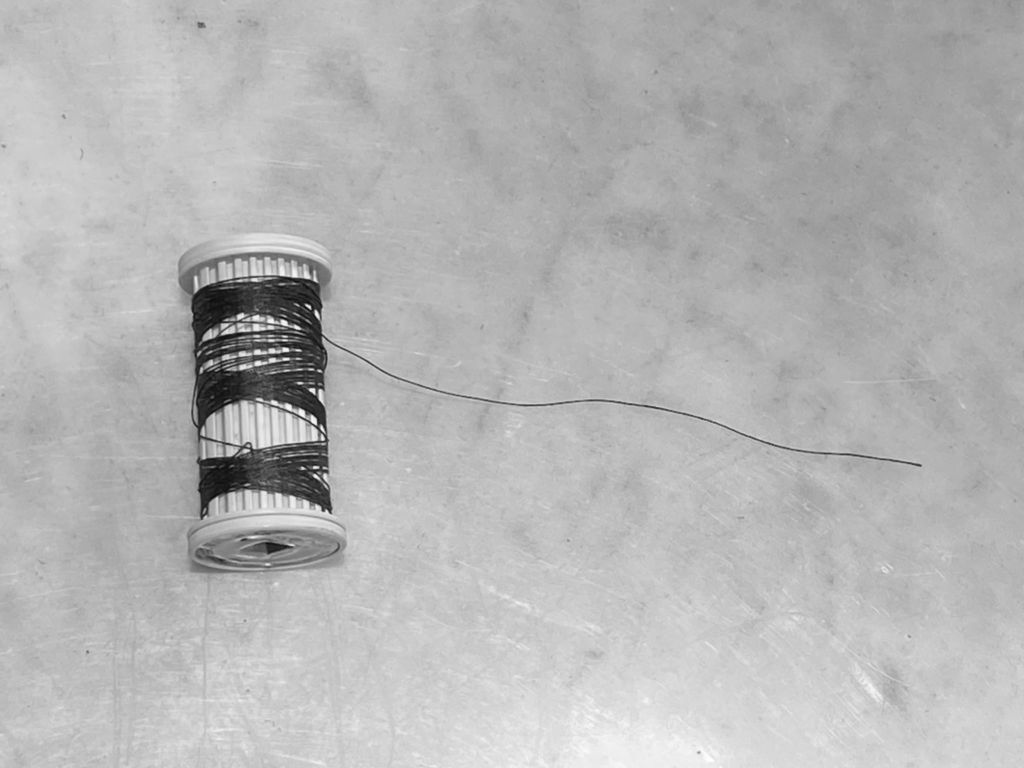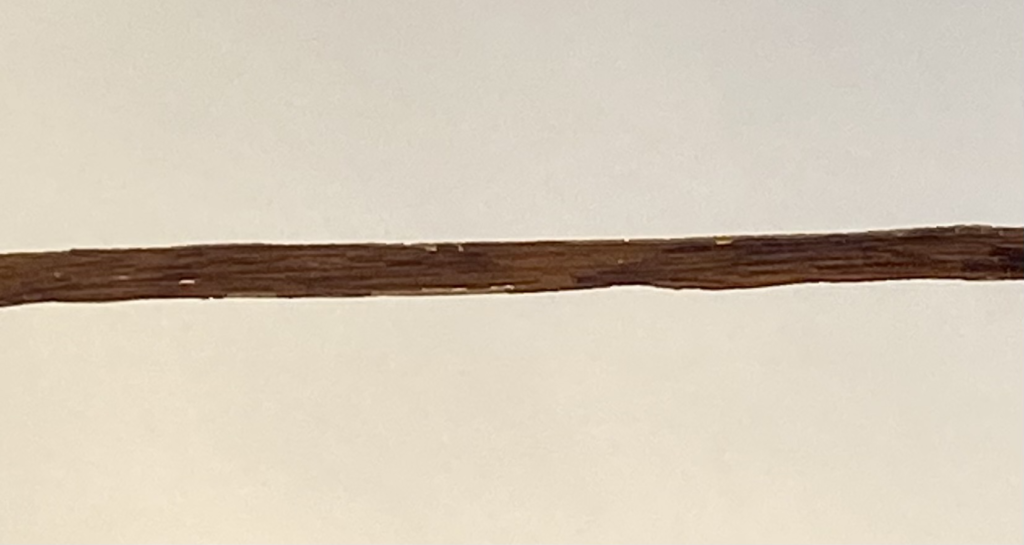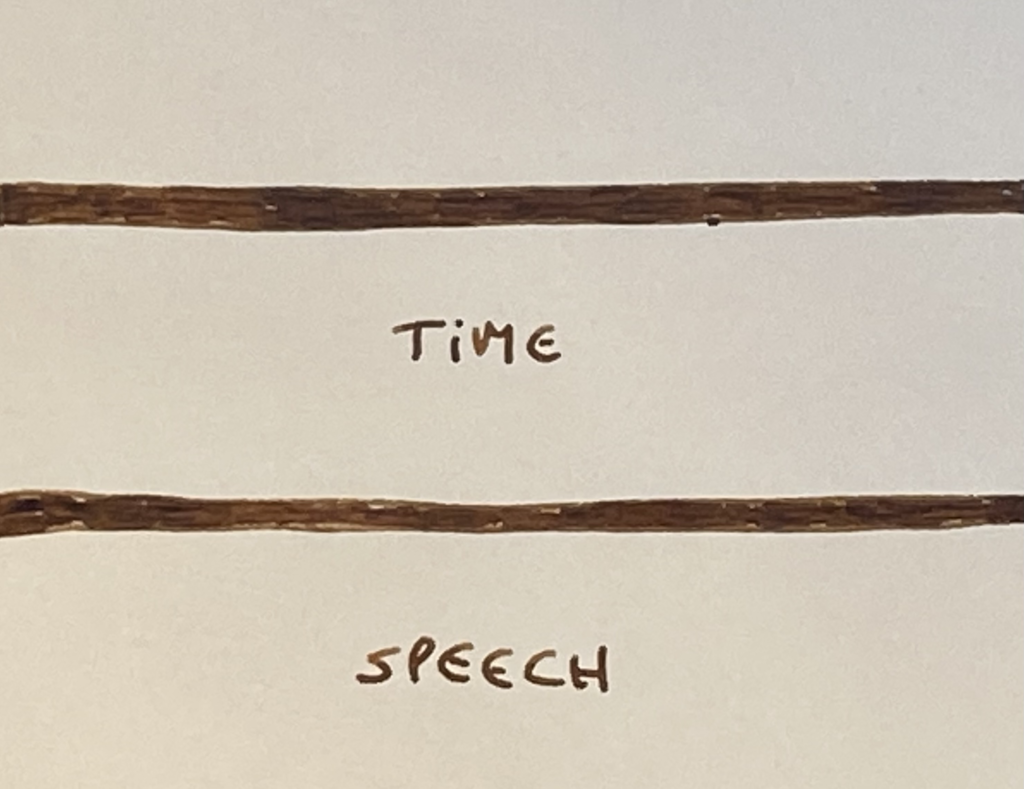
Source: Photo Alex Pillen
The thread of speech, a thread of language was a familiar trope in ancient times. After raw fibre material was prepared it was spun into a continuous thread. Spinning and threads played a role in the concrete phrasing of abstract notions. The continuity of a thread is why thread as a concrete item is well-adapted to become a metaphor for both time and language. In English this image is less frequent, but in French one can say ‘as time goes by’ (au fil du temps, au fil des jours, with fil standing for thread, wire).

Source: Pixabay
Thread, likewise was used to talk about speech. Uttering words takes place in time and has a linear character. The Swiss linguist and philosopher de Saussure offered a poignant visual image, which I quote here. A sign’s physical form, the sound of words unfolds solely in time, from which it gets the following characteristics: (a) it represents a span, and (b) the span is measurable in a single dimension; it is a line’.

In the stream of speech there are phonic segments, the sound of words, heard one after another, without any possibility of either overlapping or going backwards. It is also possible to represent time as a line, something easily embodied in a tight thread. Time and speech constitute a continuous flow, akin to the continuity of thread. In English, we can say we do not wish to lose the ‘thread’ of a speech, the ‘thread’ of our thoughts should not be interrupted. These are images of language and time running in the same direction, each as a continuous thread.

References
Guilleux, N. (2016). Of metaphorical matrices and their networks: Generally speaking, and in the field of textile activities. In Fanfani, G., Harlow, M. & Nosch, M.L (Eds.) Spinning tales and the song of the loom. The use of textiles, clothing and cloth production as metaphor, symbol and narrative device in Green and Latin literature. Oxbow Books.
pp.8, 9
Saussure, F. de (1974). Course in general linguistics. London: Peter Owen Publishers.
p. 70